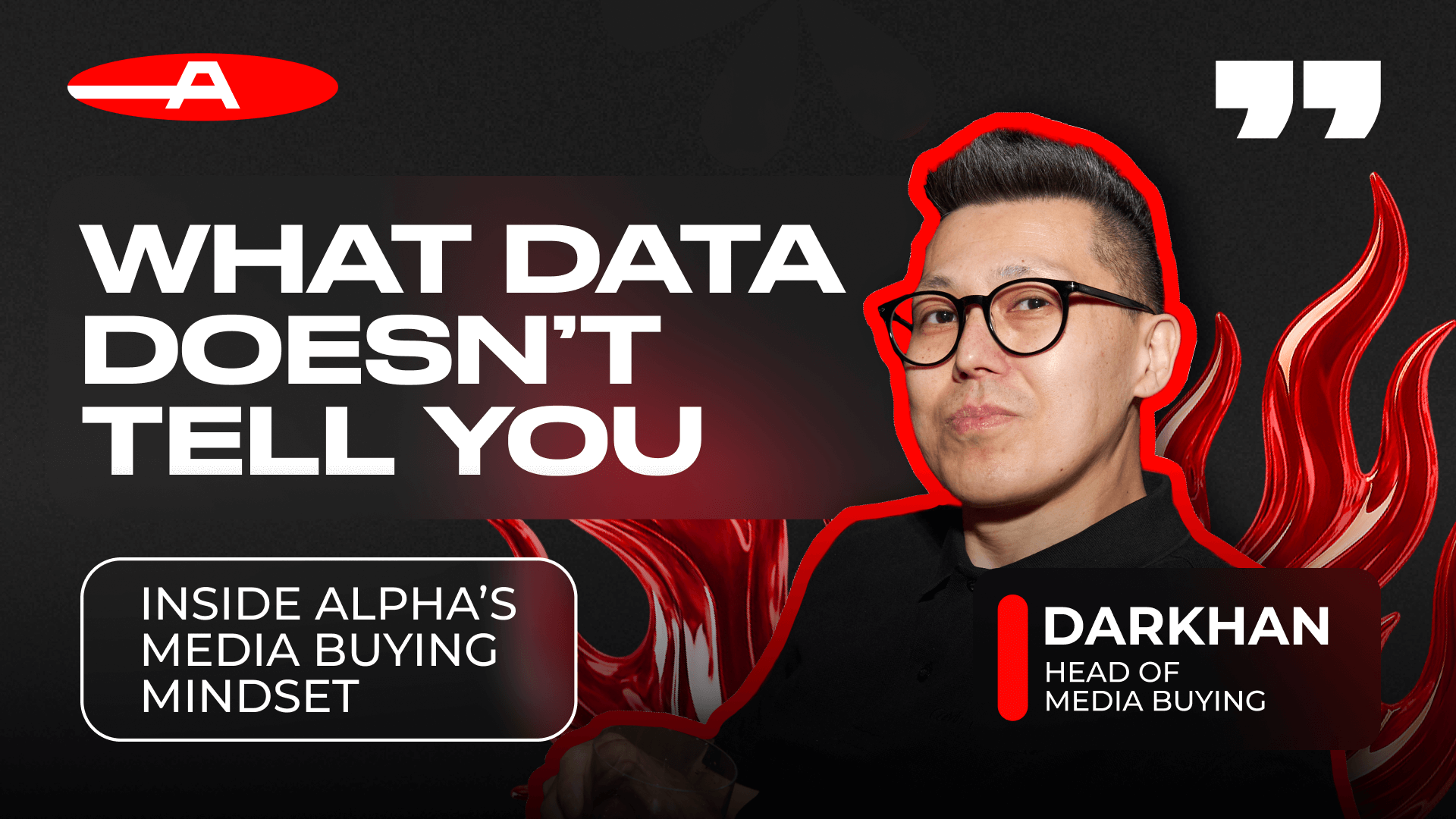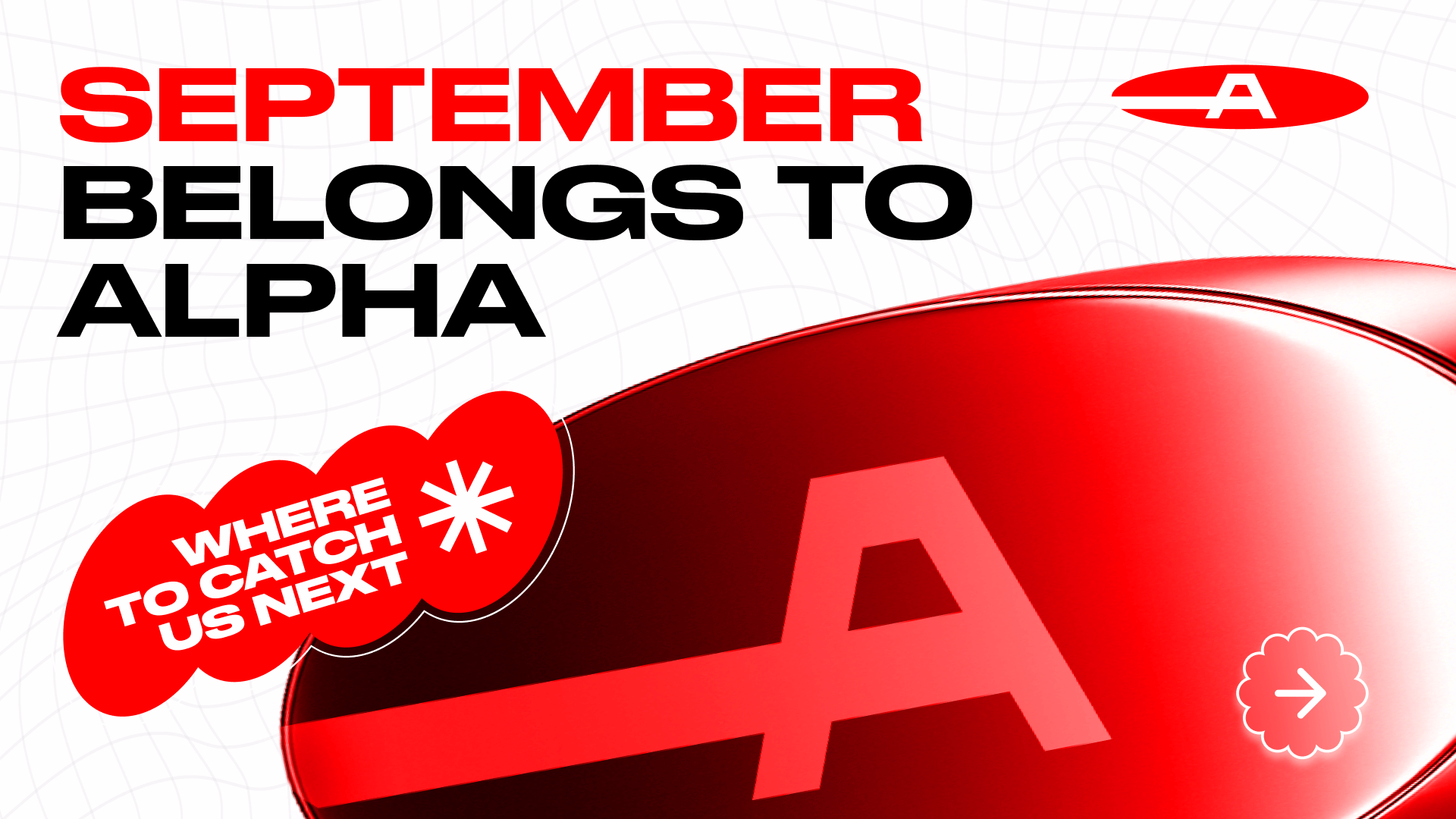Behind every metric, there’s timing, instinct, and the courage to test what others avoid.
In this interview, Darhan, Head of Media Buying at Alpha Affiliates, shares how he sees the craft today — from scaling myths and intuition-driven wins to the mindset that turns traffic into long-term performance.
Interview
1. What was the biggest myth about media buying you believed before you started — and how did reality change your perspective?
The biggest myth in media buying is thinking that if you scale ad spend by 10x, your results will grow by 10x as well. That’s the most common and most painful mistake.
2. When was the moment you first thought: “Yes, this is my field”?
The very moment I launched my first ad campaign and saw the first leads and the first money behind them.
3. What’s the most unexpected traffic source you’ve ever tried that actually performed well?
It was clickunder traffic. Very interesting, complex, and expensive, but surprisingly effective.
4. Can you share an example of a campaign where instinct mattered more than the data, and it worked?
I can’t share a concrete example since I don’t want to reveal our working strategies. But I can say that about 70% of successful campaigns came from intuition. It’s the accumulated “visual library” of creatives that starts guiding you.
5. Have you ever had a campaign that burned money but ended up being more valuable than a profitable one because of the insights it gave you?
Yes. Right now we’re testing a new traffic source for us, InApp. It’s quite expensive at the learning stage, but I see huge potential in it.
6. Why do you think more companies are building in-house media buying departments instead of relying solely on affiliates?
Stability. An in-house media buying team gives more control over traffic quality. You control what gets launched. Fraud is excluded by 99.9%. You can quickly launch new GEOs and brands. You can even run loss-making campaigns if necessary. Overall, it gives much more flexibility and control.
7. How has the definition of “quality traffic” shifted over the last couple of years?
As traffic volumes and data grew, advertisers realized that not only the quantity but also the quality of traffic matters. That’s a natural evolution of the market. At first, everyone just wanted leads. Then they started to look at how those leads behave, what their LTV is, etc. Driving traffic has become harder but the challenges have become much more interesting.
8. In your view, which tools or platforms are overrated in media buying today?
AI tools. Some people bet everything on them, which is a big mistake. Language models will be great in the future, no doubt. But right now, they can’t cover 100% of needs. They’re still weak at building apps or handling complex coding tasks. On the other hand, they’re already excellent at things like voiceovers for videos. So I’m all for using AI but in moderation, and not at the inflated prices people sometimes ask.
9. What’s one insight about working with algorithms that completely changed the way you approach campaigns?
That ad network algorithms don’t work 100%. They often (sometimes very often) misjudge the audience’s targeting. And something as simple as restarting campaigns can drastically improve performance.
10. If Meta suddenly banned all iGaming ads tomorrow, which 2–3 channels would you move to first?
Wait, is it even allowed? Then, new sources would be InApp and UAC. After that, PPC and pop traffic.
11. For someone just starting out, what would you say they should learn first — and what can wait until later?
First, study the documentation of ad networks. Understand how they work, their principles. Don’t ignore the guides no matter how boring they look. Sometimes they can save you thousands of dollars. Leave scaling for later. First, learn how to consistently generate results day by day.
12. Which parts of media buying do you think will get automated in the next 3–5 years — and which ones will always stay a hands-on craft?
With AI development, creative production will likely be automated, or at least greatly simplified, that’s something I personally look forward to. But direct campaign management will still require hands-on work. That said, automation of repetitive tasks will definitely increase the efficiency of every media buyer.



